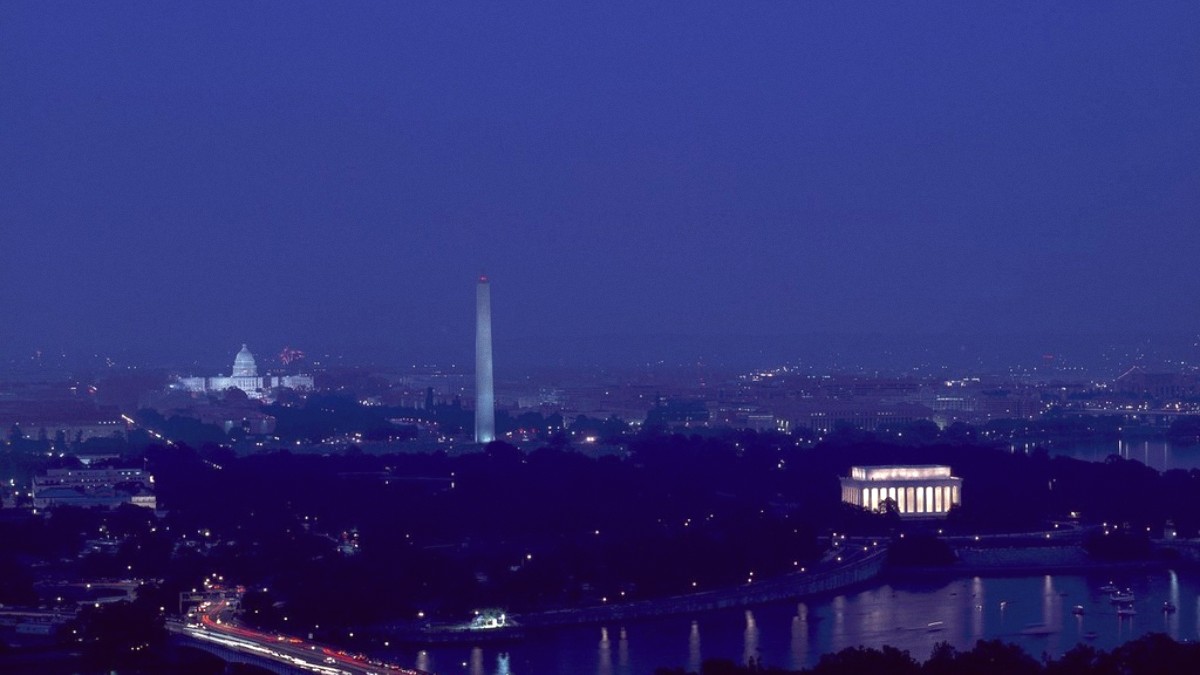
Washington Dc, USA
Spring (March-May): Temperatures are mild, typically ranging from the 50s to 70s Fahrenheit (10-25°C). Humidity remains moderate. This season brings blooming flowers, with the iconic cherry blossoms reaching their peak in late March or early April. Rain is common but usually appears as moderate showers.
Summer (June-August): Expect hot and humid conditions. Temperatures often reach the 70s to 90s Fahrenheit (25-35°C+). High humidity makes the air feel heavy. Afternoon thunderstorms are frequent, giving brief relief from the heat.
High Season (Spring, specifically Cherry Blossom season, and Summer): Summer includes long daylight hours, ideal for extended sightseeing.
Cons: Expect large crowds at popular attractions, higher accommodation prices, and significant heat and humidity during summer months.
Autumn
Pleasant weather, fewer crowds than peak, beautiful fall colors. Good value on accommodations.
Fewer major outdoor events.
Winter (Excl. Holidays)
Smallest crowds, lowest prices on flights/hotels. Unique events like ice skating.
Cold weather, potential for snow/ice storms. Shorter daylight hours.
Activities
Late March to early April.
Spring and Fall have comfortable weather.
These are suitable year-round, but the low season (winter) gives a less crowded experience.
You can enjoy these activities year-round, but spring and fall present the most pleasant weather for strolling between shops and cafes.
Blooming flowers, comfortable for outdoor walks.
Long daylight, hot and humid, afternoon thunderstorms.
Mild and pleasant, good for outdoor exploration.
Cold, short daylight, potential for snow/ice.
Crowds and higher prices during festive times.
Planning your trip to Georgetown involves understanding U.S. Entry regulations. Requirements vary based on your nationality.
Requirements differ for U.S. Citizens, Visa Waiver Program (VWP) countries, and Non-VWP countries.
Citizens of 41 VWP countries can enter for tourism/business for up to 90 days without a visa, requiring an ESTA.
Completing these steps before travel can make for a smoother entry into the United States.
Costs for a Georgetown visit vary significantly based on your travel style.
The official currency is the United States Dollar (USD or $). Major credit cards, including Visa, MasterCard, American Express, and Discover, are widely accepted throughout Georgetown and Washington D.C.
ATMs are easily found for cash withdrawals. Currency exchange services are available at airports and some banks, but rates may not be favorable.
Daily costs: $100 - $175. This budget covers hostel dorms or budget hotels outside Georgetown, and meals from groceries/fast food.
Public transport is for savings.
Georgetown accommodations can be pricey.
Daily costs: $250 - $450. Mid-range hotels in Georgetown or nearby, casual to mid-range restaurants, and public transit with occasional ride-shares.
Good for paid attractions and some tours.
Splurging on fine dining raises costs quickly.
Daily costs: $600+. Luxury hotels, fine dining, private car services, and exclusive tours.
Premium experiences are readily available.
Highest tier accommodations are very expensive.
| Category | Range (per night/person) | Notes |
|---|---|---|
| Accommodations | Hostels: $50-$90; Budget: $90-$150; Mid-range: $150-$250; Luxury: $400-$800+ | Few hostels in Georgetown directly. |
| Meals | Breakfast: $10-$25; Lunch: $15-$35; Dinner: $30-$100+; Snack: $5-$15 | Street food/snacks for quick bites. |
| Transportation | Metro/Bus: $2.00-$6.00; Day Pass: $13-$15; Taxi/Ride-Share: $15-$30+ | Metro fares vary by distance/time. |
Your well-being is a top priority when traveling to Georgetown. Prepare with health and safety in mind.
No specific vaccinations legally needed for U.S. Entry from most countries. Consult your doctor for personal recommendations.
High pollen in spring/fall. Bring usual medication if prone to allergies.
Potential for heat-related illness. Stay hydrated, wear light clothing, seek shade during peak heat.
Emergency Services: Dial 911 for Police, Fire, or Medical.
Hospitals: MedStar Georgetown University Hospital is directly in Georgetown. George Washington University Hospital is also nearby.
Urgent Care: Several clinics can handle non-emergency medical needs. Pharmacies: Major chains like CVS and Walgreens are readily available.
Tap water is safe to drink. Food safety standards are high.
Considered one of the safest neighborhoods in Washington D.C., with lower crime rates. Well-patrolled and affluent.
Like any major city, D.C. Has areas with higher crime. Practice caution, especially at night or in unfamiliar areas.
Petty theft (pickpocketing, bag snatching) can occur in crowded tourist areas or on public transport. Stay vigilant.
Be aware of potential seasonal hazards.
International visitors have a strong recommendation to purchase comprehensive travel insurance. This coverage supports medical emergencies, trip cancellation or interruption, lost luggage, and other unforeseen events. Given the high cost of healthcare in the U.S., medical coverage is especially significant. Consider policies that cover pre-existing conditions if applicable.
Insurance storefront for adventurous travelers.
Insurance designed for digital nomads and remote teams.
Medical and travel-related coverage for foreigners visiting the U.S.